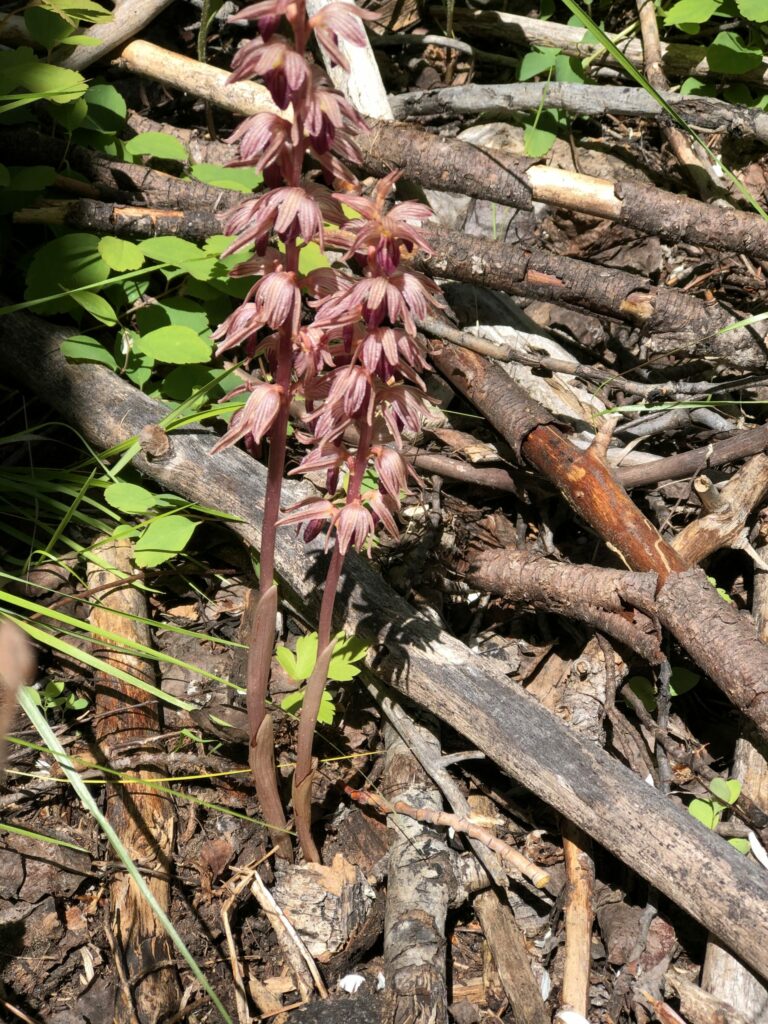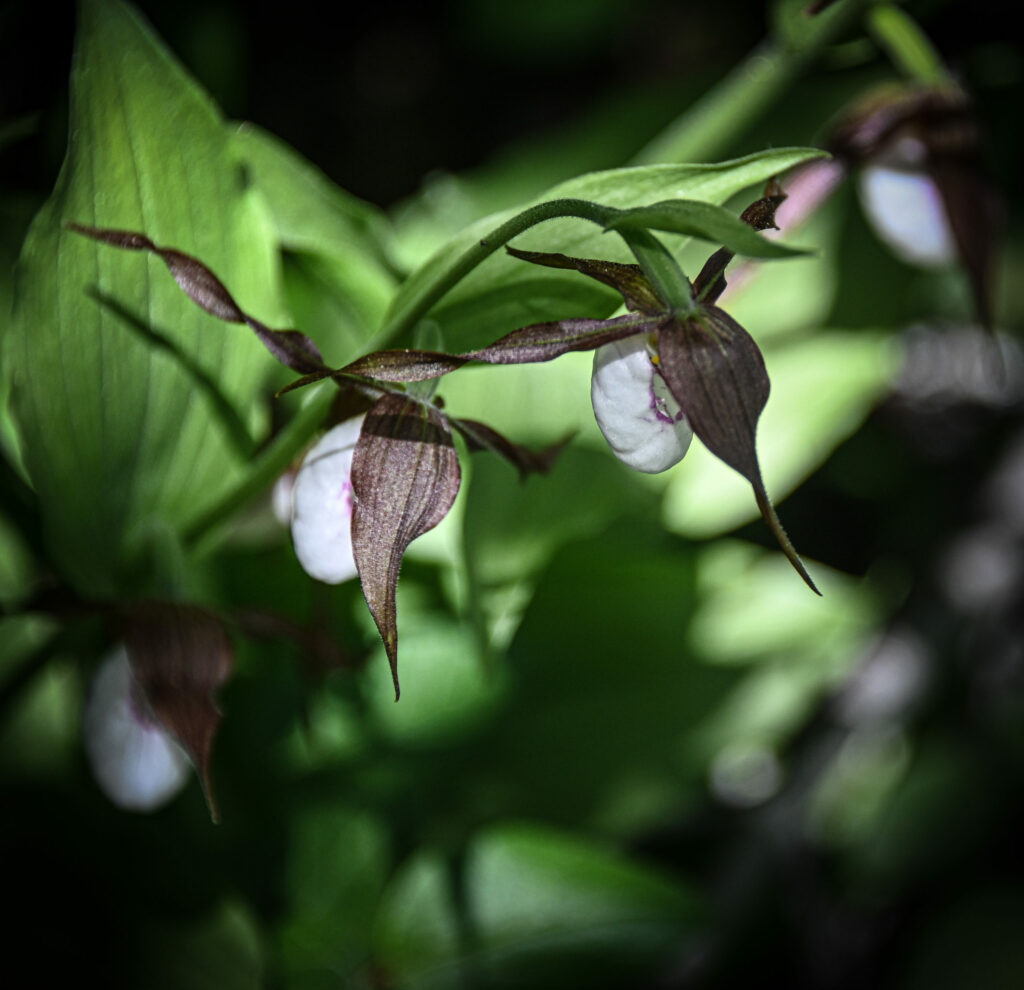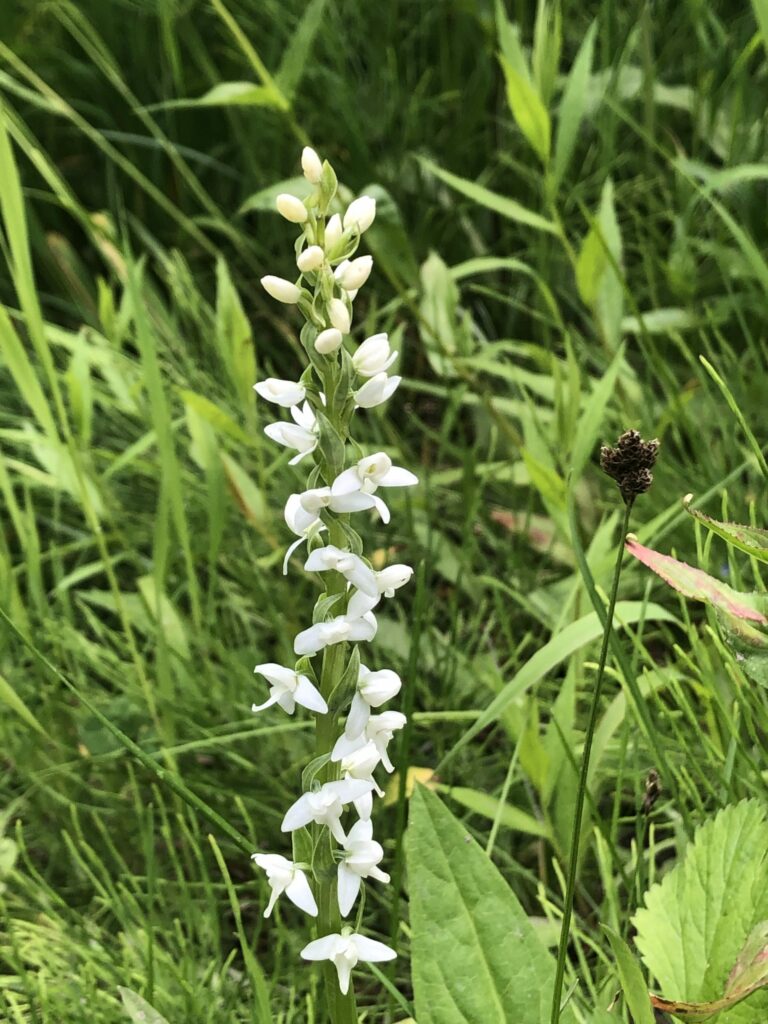Our amazing watershed not only provides Peachlanders and numerous animals and plants with fresh water, it is the home to some of the most ancient plants on the planet – wild orchids.
Orchids are one of the two largest families of flowering plants, (the other being the Aster family (Asteraceae) which include daisies, dandelions, and chickory which are the blue flowers growing everywhere in Peachland, alongside the roads.)
Did you know that there are four times the number of orchid species than there are mammal species?
There are 28,000 currently accepted species of orchid, distributed in about 763 genera around the world. One of the most popular orchids you didn’t know includes the Vanilla bean plant which is actually an orchid!
So now you know about orchids in general, what about our wild orchids in the watershed? The PWPA Watershed Watch team has identified 3 species this summer:

The Striped Coralroot Orchid (Corallorhiza striata) Corallorhiza orchids have no leaves so they do not produce chlorophyl. Instead they wrap their roots around the roots of mature trees and use specialized mycorrhizal fungi to harvest sugars (food) from other plants. Trying to transplant these to your garden will result in the death of the plant because it relies on very special types of fungi to keep it alive. These orchids only grow in specific environments and your garden is not one of them.
This is also the case with our other 2 orchids, the Mountain Lady’s Slipper (Cypripedium montanum) and the White Bog Orchid (Platanthera dilatate). While these orchids have leaves they still must enter symbiotic relationships with various mycorrhizal fungi that provide them the necessary nutrients to germinate and grow. They rarely thrive outside their wild habitats.

The mountain lady’s slipper, like other lady’s slippers, has been “designed” to trap pollinators temporarily to ensure they get enough pollen before they depart. If you see a lady’s slipper orchid, watch it for several minutes to see if a bee comes by – you haven’t seen anything more comical that a bee inside a lady’s slipper! It’s probably why they are called Bumble Bees!!

The bog orchid is endangered or threatened in several US states, due to habitat destruction and over picking. ALL the orchids in our watershed are threatened with destruction because the forest is their prime habitat and as long as logging continues in its current form, these orchids too will disappear. Please don’t try to transplant orchids – they need that special fungi to thrive.
If you’re interested in becoming a volunteer on our Watershed Watch Committee, please send us an email! Finding wild orchids is just one of the benefits!
